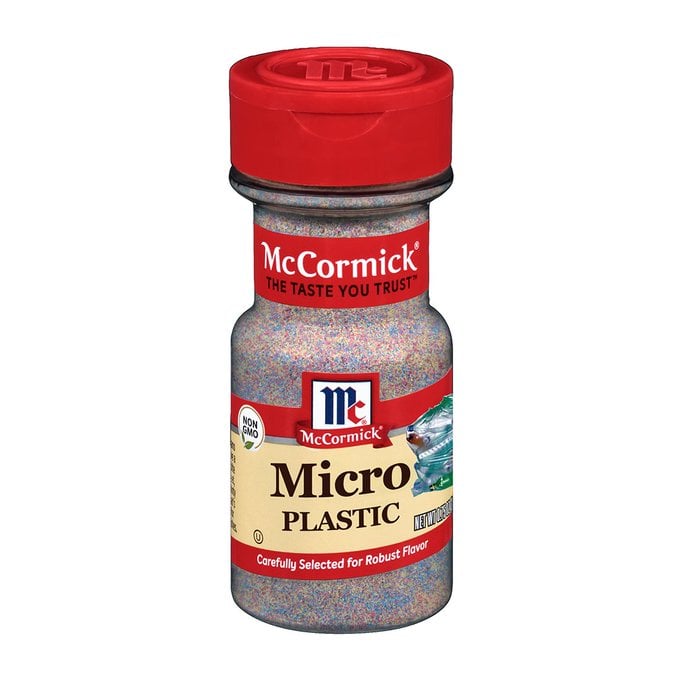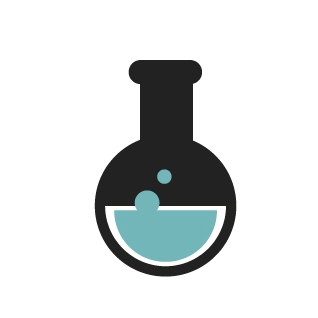I mean, orange was right there…
Which is a colour named after the fruit iirc
It is! We could use redcurrants, blackcurrants, and blackberries though
A fact that I hadn’t realized. TIL.
Prior to the fruit it was just considered a shade of red
Holy fuck
And the fruit is named after the tree.
Engagement bait.
right on. this tweet is like saying “there’s not a single country in africa that starts with the letter K.” there obviously is, but it’s targeting people who are knowledgable enough to know the answer but not intelligent enough to understand the point of the tweet.
Knairobi
This is how you do engagement bait
I’m already married.
Just a little fun fact: the color was actually named after the fruit and not the other way around :D
“The word “orange” came into English from the Old French “pomme d’orenge”, which referred to the fruit.”
There are still blackberries though…
I think this might have been a joke abstracted to allude to that, without falling for the trap. Oranges were not named after the color, the color was named after the fruit.
But aren’t oranges actually green?
*Not a joke, btw. Oranges grown in tropical places are green.
Oranges are green until they are ripe. What tropical place did you see a ripe green orange?
Vietnam. Brazil. Ecuador. A lot of equatorial places.
The orange color is caused by something happening to the chlorophyll when the temperatures cool. But in the tropics, temps can be fairly steadily warm and don’t trigger that reaction.
In tropical countries, orange rinds may be permanently green – even when completely ripe.
Crazy!
Huh, TIL. I worked at an orange grove in the subtropics, and knew about the cold snap for other aspects of citrus, I never knew about the peel.
Apparently oranges and other citrus fruit (and others, like bananas) are “degreened” with ethylene.
Here’s a video with bananas. https://youtu.be/jzjBAAv9nxc
I can also say that bananas are quite yellow when ripe, without additives. Have had banana trees in 2 different houses, of 2 different banana varieties.
I think I unintentionally blurred together two separate things.
Citrus can be ripe and still be coloured green. Ethylene is used to make them orange, as they look more appealing to buyers that way.
Green bananas on the other hand are just not ripe. Ethylene is still used here, but to “kickoff” the fruit’s ripening process - in just a few days it becomes yellow and ripe.
There’s many things that release ethylene naturally when ripening, like tomatoes, apple, kiwi, … These need to be kept away from other sensitive produce (lettuce, spinach, broccoli, cauliflower, …) as they’ll start looking “nasty” and lower their shelf life.
Yes that’s fair. I live away from home now where bananas are always shipped by sea.
My understanding is that they reap the banana still green, stall their ripening (presumably by somehow making the ethylene inert or some other mechanism), then accelerate their ripening upon arrival.
This has the very evident effect of making the bananas last a very few days in between becoming ripe and getting mushy and improper for consumption.
Back home, they last maybe 4-8 weeks at different stages of ripening, from thick and bright yellow skin with a firm and slightly dry and zesty fruit, to a fairly blackened and fragile skin with a very soft and sweet fruit but still not yet mushy and gooey.
It’s common here to eat green bananas, to the point that many locals think that’s how it’s “supposed” to be. I have explained to friends that’s not the case and it has transformed their views of the fruit. It’s quite curious!
Having grown up in Brazil, I can confidently say that most of our oranges are indeed orange. Green is usually the colour of non-ripe ones and you can expect extreme acidity from them.
You would be confidently wrong. They are artificially de-greened with ethylene. In Brazil it doesn’t get cold enough for natural de-greening. Also, having tasted both natural green and de-greened (and naturally de-greened) oranges. Their outer color has no correlation whatsoever to the taste.
Thank you for that. It’s always nice to be “corrected” by a stranger who has no idea what they’re talking about.
Having had both mandarin and orange trees in back gardens in Brazil, I stand by my confidence.
From a link posted elsewhere in this thread:
When they’re expose to temperatures below 55°F (12.7°C) for long enough, the green chlorophyll breaks down and the orange carotenoids surfaces in a process called “degreening.”
Are you confidently suggesting that in Brazil it doesn’t get colder than 12.7°C? I have a land plot on the moon to sell you. Or, if you prefer to be educated instead, I can point you to some lovely mountainous places to visit in Brazil with a chance to see snow and some of the absolute best artisanal chocolate in the world!
Hell when I was a kid I saw snow at ocean level even!
deleted by creator
Even if they were, they’re not called greens.
It might depend on the variety, there are many, many kinds of oranges.
Orange, cherry, blackberry, etc.
I’m pretty sure orange and cherry are named after the fruit, but Blackberry is true.
Nah it’s inspired from the phone
Nah that’s apples
That tracks. Steve Jobs was known for his enjoyment of fruit, to a potentially problematic degree.
Dunno who that is but Tim Apple invented the computer and his ancestors invented the apple (in 196 AD) and just for the record if you think enjoying fruit is problematic you’re probably homophobic or something ¯\(ツ)/¯ iunno go away
Fun fact: The first logo was going to include Isaac Newton but they hadn’t invented him yet!
those fuckers try to sell their fruit by using a brand’s name. They even got the design wrong, it’s supposed to have a curved side.
Pendants will argue that black is not a colour
Physicists might argue that, but black is a color linguistically and in common usage; I’d argue that since OP was generally speaking in a linguistic context, linguistic rules override physics pedantry.
linguistic rules override physics pedantry.
Idk why, maybe because I’m a scientist, but this speaks to something in my soul
I thought briefly about editing that to say, “in this context”, but I thought it might be redundant.
It’s like the whole fruit/vegetable debate, and there not really being a scientific category of “vegetables” that aligns with the common usage. However, in common usage, the loose, lay definition of “vegetable” is far more useful than the scientific, taxonomical one.
Context is king.
Yeah. I’ve had this discussing with others in different forms, where they are arguing that words have specific definitions…
I would go even further… My take is that what you said is right, but also, what a given context (like “cooking”) is can be very different for different people… So even in situations where three is really only one meaning for a word (rare, but maybe “broccoli” is an example), the word is understood differently by different people because it has different connotations attached for everyone (e.g. “I love/hate it”, “my grandparent used to cook it badly”).
Word definitions are like the lowest common denominator consensus version of those individual meaning, but they are changing slightly all the time as people change. Dictionaries are just documenting that evolution, but are constantly playing catch-up.
I agree with you!
Word definitions are like the lowest common denominator consensus version of those individual meaning, but they are changing slightly all the time as people change. Dictionaries are just documenting that evolution, but are constantly playing catch-up
This is my pet peeve, and yet I know I’m wrong. I hate Miriam Webster for being a catalog of slang; it’s not a dictionary, anymore. OED is the only English dictionary. Words have meanings, despite 20% of the population misunderstanding or intentionally redefining them.
And yet, and yet… it is not possible to argue against popular usage in natural languages. The best you can do is use a conlang that enforces strict no-evolution rules, such as the stance Esperanto has traditionally taken. Or learn Volpuk, a logic based language that strives to eliminate all ambiguity and achieves only being impossible to use outside of extremely narrow circumstances, because that’s not how humans think.
This is one of the great internal conflicts in my world: natural language evolves and changes, and context alters meaning even further; and yet I desire reliable definitions and disambiguity, and shudder when I see MW has added “boomer: N. An older person.”
Redcurrant
Actually, the color is named after the fruit. It wasn’t until the late Middle Ages that we discovered anything other than the redcurrant that was red in color. Poppies, for example, were only discovered in ~1917, and we only found out about blood in the 1970s.
Are you seriously trying to claim that no human ever bled and saw the colour until the 1970s? LOL
Lol no. They are entirely taking the piss.
If their piss is red they need to go to the doctor as per this shart

Dear Mr Encyclopedia, when were raspberries discovered? Wasn’t Avalon “the isle of apples?” When did Christian bibles start describing the forbidden fruit as “apples?” Were they not red apples?
What color did they call ripe ribe avu-crispa (a gooseberry)?
The Biblical fruit is just given as “pərî” and could be any fruit. Avalon is from the Welsh aflonydd, “peaceful”, so named because it was King Arthur’s vacation spot. Raspberries have not yet been discovered, at time of writing.
I tried to be careful about the biblical reference. It’s been translated as “apple” since at least the 12th century CE.
The biblical comment was not to argue that the Torah said “apple”, but that it has been translated as “apple” for centuries, demonstrating that the apple has been a commonly known fruit in Britain for a long time; and that ripe apples are frequently red.
Fuck.
Greengages.
Hah! Why do we call black people coloured people then!
Checkmate blackisnotacolorists!
One might ask Crayola.
The source for this is old reddit threads, so hardly authoritative, but supposedly the color orange was actually named after the food item.
Yes indeed. Before we had “orange”, and also “purple” everything was just “red” which is why we have red onions and red cabbage that are anything but red and several species of bird are called red despite being clearly orange coloured.
And why orange haired people still have red hair.
Sometimes I learn something that makes me think, how the hell had I not figured that out sometime in the past half-century.
For some reason, french has a specific term for orange/red hair that’s quite old. So we don’t have red haired people. I don’t know if other languages share this.
Purple was sort of around. There was a dye derived by clams with a name that sounds like purple by the Phoenicians, Greeks, then Romans, and was more of a red-purple to red, but that eventually evolved into the word we use now. They also attributed it to the color of wine and of all things, the ocean.
Weirdly blue is a pretty rare color concept in the ancient world, and a number of cultures often just combined it with green, or vice versa. The closest to blue as a concept they usually got was indigo, another dye imported from India, and they’d dilute that into woad for a slightly lighter more pastel/ periwinkle blue (it wouldn’t stick as well as true indigo though).
Blackberries
Redcurrants?
Blackcurrants?
Greencurrants?
Westcurrants
Chestnut
Cucumber.
Even if those leaves were a fruit, they’re not called greens. Some kinds of leaves are called that as a general term, but not the ones in the picture. He’s wrong on so many levels!
Is that what he was saying? That’s what I was confused about. Those leaves are not greens. They are green, but still everything you said.
Greengages.
Leaves are fruits? Eh?
If he’s pretending to be this dumb, he’s hilarious.
Green beans are technically fruits
Here we go
fruits are kind of a dessert, right? so are brownies.
Greengage?
Yellow squash
Does green apple count? It feels like an adjective but considering there’s “green apple” flavored candy, I’d consider it a part of the noun.
I think the name for that variety is Granny Smith. The reason why it isn’t called “Granny-Smith-flavored candy” will be left as an exercise for the reader.
Red apple, green apple red strawberries, yellow strawberries, red tomatoes, green tomatoes, yellow tomatoes, purple tomatoes (although purple isn’t a real color by itself). Oh and red berries.
You might argue it’s not the fruit’s name, but when you say “honny, can you get me some apples from the store while you’re going there please?” and she comes back with green apples, while you wanted red apples, you’d be like “fuck. I should have named it better, I only asked for half the name of what I wanted, now I need to hit my wife to blame her and hide my mistake”. So my point here is, not naming the color of the fruit in its name is the cause for domestic violence.
I honestly will argue that it’s not their name, but rather a descriptor of the fruit.
Cripps Pink however, is a name of an apple.
Pink Lady is a brand name.
That’s true actually! The name of the apple is Cripps Pink!
I was joking
I know! I even gave you an upvote!




















